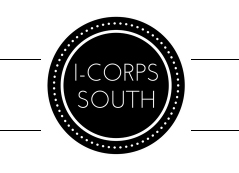Upcoming CCTS Events

FDA has opened a public docket in the Federal Register for input on a new Office of Patient Affairs and other initiatives, both ongoing and potential, to provide a more transparent, accessible, and robust experience for patients. This effort builds on feedback received by FDA to a previous public docket regarding that agency’s stakeholder responsibilities as outlined in the Food and Drug Administration Safety and Innovation Act (FDASIA).

To meet the growing needs of our pediatric researchers, we have opened a new 2,547-square-feet facility on the 3rd floor of Dearth Tower. The colorful new space includes a reception area, triage room, six exam rooms, office and conference space, workspace with monitors, a lab with centrifuge and freezer, and a storage room for equipment.
The CHRU, a partnership between CCTS, Children’s of Alabama, and the UAB Department of Pediatrics, will reduce barriers for Children’s and UAB researchers to conduct rigorous clinical and translational research in childhood diseases. “The unit is essential for investigators to translate scientific discovery toward improved health across the lifespan, a goal we actively support,” said CCTS Director Robert Kimberly.
Research teams have already expressed interest in the new unit for studies including epilepsy patients, the natural history of Rett Syndrome, and the efficacy of maternal immunization with a respiratory syncytial virus (RSV) vaccine during pregnancy on infants. Our space on the 7th floor of Dearth Tower, the “CHRU Satellite,” will continue to see patients as well.
To learn more, visit our CHRU page.





More than 100 people attended this inaugural event, which showcased informatics projects in immunology, omics, and complex diseases like cancer. The theme, “Forging New Bioinformatics Collaborations,” helped start a dialogue between bioinformatics and several other affiliated disciplines (biostatistics, structural analytics, network medicine).

Dr. James J. Cimino, director of the Informatics Institute and co-director of the CCTS, opened the symposium with a quick review of the differences in bioinformatics, clinical research informatics, and clinical informatics at UAB. “Bioinformatics is a very strong tradition here, providing support for over a decade to researchers who need help analyzing their biological data.” He explained that CCTS informatics also connects investigators to biomedical and clinical informatics expertise (see the CCTS Informatics Gateway to learn more and submit a request for project assistance).
At the same time, the Informatics Institute is bringing in new faculty whose research will be oriented to the "scholarship of facilitation," going beyond support to explore new theories and methods that will apply to a broad spectrum of biomedical research problems. “Personalized medicine is where this is all going to come together,” he said, “to improve care of patients from the molecular level all the way up to the population level.”
Dr. Jake Y. Chen, Informatics Institute associate director and chief bioinformatics officer at UAB, highlighted some of the challenges in reaching the promise of personalized medicine in his talk. “Omics data are less than useful unless they are curated, crosslinked, and aggregated with contextual knowledge.” The goal, he said, is to construct computerized models of complex biosystems that are understandable. To get there, future bioinformaticians will need skills not only in programming, but also data wrangling and disease biology for perspective, and “a little bit of data artistry,” or the ability to help data tell their story. “Omics and computing have the potential to turn medicine into a practice of data science for human well-beings.” He reviewed the pros and cons of different approaches to gene network modeling for drug discovery, ending with a new, five-step process for generating a gene terrain map, which “enables discovery of gene set modules based on topology, expression, and prior annotation all together.”
The half-day event was cohosted by CCTS, the UAB Informatics Institute, the UAB Comprehensive Arthritis, Musculoskeletal, Bone and Autoimmunity Center (CAMBAC), the UAB Division of Clinical Immunology and Rheumatology, and the Multidisciplinary Clinical Research Center. A special thanks to our organizers, moderators, and chairs--Drs. Bridges, Chen, Cimino, Cui, Lefkowitz. The complete list of topics and speakers is below.

Intro
James J. Cimino, MD, director, Informatics Institute and CCTS co-director
Session 1
“Informatics for Immunology” B-Cell Repertoire Sequencing, Multi-parameter Flow Cytometry, and Data Visualization”
Alex Rosenberg, PhD, associate professor, Microbiology, Informatics Institute adjunct
Structural Variation Analysis from Short and Long Reads”
Zechen Chong, PhD, assistant professor, Genetics, Informatics Institute adjunct
“Single Cell Genomics and Data Analysis”
Min Gao, PhD, bioinformatics scientist, Informatics Institute adjunct
“Transforming Omics Data and Visual Storytelling”
Jake Chen, PhD, professor, Genetics, chief bioinformatics officer, and associate director, Informatics Institute
Panel Discussion—“How to Engage Bioinformaticians for Omics Analysis?”
David Crossman, PhD, assistant professor, Genetics, and Bioinformatics director, Heflin Center for Genomic Science Core Laboratories (moderator)

Session 2
“Bioinformatics and Biostatistics—Overlaps and Distinctions”
Xiangqin Cui, PhD, associate professor of Biostatistics
“Network Medicine Approaches to Complex Diseases”
Merry-Lynn McDonald, PhD, assistant professor, Medicine
“A Novel Gene-Expression Signature for Ovarian Cancer Prognosis”
Malay Basu, PhD, assistant professor, Pathology, Informatics Institute adjunct
“Challenges in the Bioinformatics of Metabolomics”
Stephen Barnes, PhD, professor, Pharmacology and Toxicology
Panel Discussion—“How to Be
"How to Benefit from Bioinformatics for Translational Biomedical Research”
Elliot Lefkowitz, PhD, professor, Microbiology, director, CCTS Informatics Services, Informatics Institute adjunct (moderator)
Closing
S. Louis Bridges, Jr. MD, PhD, professor, Medicine, director, CAMBAC
A video of several presentations is available on the CCTS YouTube channel.

Dr. Scott Weir, director of the University of Kansas Medical Center’s Institute for Advancing Medical Innovation (IAMI), began his talk with a quote from the Ewing Marion Kaufmann Foundation, which sees education and entrepreneurship as two ends of a continuum: “Few universities have established an overall strategy to foster innovation, commercialization, and spillovers.”
Read more: May CCTS Forum Explores Public-Private Partnerships in Translational Science
